Marketing channels: it’s not just what you say, it’s where you say it
Posted on: May 23, 2022by Ruth Brooks
Some of the most important components of any marketing strategy are the channels used to reach people. These marketing channels – the spaces where marketing messages are communicated to a target audience – can determine who receives marketing material, how they’ll perceive it, and can even influence their next steps.
Consider email – a hugely popular channel for marketing. Through email marketing, brands can:
- determine who receives their message, whether it’s people who’ve opted into marketing for the brand, previous customers, or potential customers who fall within the brand’s target demographics.
- personalise the message to suit the target audience. For instance, a business could generate an email list of existing customers who have left items in their online basket on the company’s website to remind them about their leftover items. They could even increase brand loyalty by offering people exclusive discounts.
- entice people to make a purchase on the company’s ecommerce website by sending them a voucher code along with a hyperlink to new or popular products on the site.
- drive prospective customers to shop in-person by sending them a coupon that’s only valid for use at a retail store.
Effective marketing channels
Marketers have a diverse and ever-growing number of channels – particularly digital marketing channels – to work with for lead generation and to market products and services to people.
Websites
An organisation’s website is the home of its online presence and effectively acts as its shop window in the virtual world. From its home landing page to its product pages, a company’s website defines and showcases the organisation’s brand, influences its customers’ journey and experience, and facilitates two-way communication between the business and its audiences.
Outside of the organisation’s own website, there are marketing opportunities on other sites. This is called affiliate marketing, where businesses pay third-party sites to advertise and promote their brand through display ads and banner ads.
Email marketing is one of the most cost-effective forms of digital marketing. Whether using a reusable template or an existing email list of past customers, a business doesn’t need to reinvent the wheel to drive website traffic, boost its sales numbers, or educate people about its brand.
According to Mailchimp, the American marketing automation platform, email marketing forces the reader to take action – and for every $1 spent, email has an average return on investment of $38.
Content
Content marketing is a rapidly growing area of marketing. Through the creation of high quality, relevant content, brands position themselves as experts in their field, building awareness, strengthening their reputation within their sector, and creating new customers.
A content marketing strategy can include articles, blogs, case studies, podcasts, infographic materials, and video marketing.
Social media
Social media platforms are a hugely important channel within marketing. Whether a business is targeting baby boomers on Facebook and LinkedIn or Gen Z on TikTok, social media is where huge numbers of people spend hours of their days, making social media marketing fundamentally important.
It’s also where influencer marketing takes place. This is when businesses work with trusted, relevant social media influencers who provide endorsements or product information for the brand with the aim of appealing to the organisation’s target demographic.
Search engines
Search engine optimisation (SEO) marketing works to ensure that an organisation’s web pages appear near the top of search engine results. For example, a business that sells gardening equipment can use SEO best practice, such as keyword research, to ensure that its pages come up at the top of Google when someone searches “buy gardening tools”.
These rankings are determined by a number of things, and it’s worth noting that there are inexpensive – or free – methods to increase organic traffic to a website, as well as paid options, such as pay per click (PPC) and Google Ads.
Word of mouth
Word-of-mouth marketing is a more traditional type of marketing, and remains especially valuable. By ensuring a positive customer experience – perhaps through an effective email campaign, a website that puts the user journey first, or a piece of content that helps raise awareness – businesses can build a positive reputation that pays dividends, whether it’s a repeat purchase, a referral, or an ongoing ambassador for the brand.
Choosing the right channels
Any channel used appropriately can be an effective marketing tool, but a little research can go a long way when finding the best marketing channels for any kind of marketing activity. Marketers will need to consider their:
- customers and target audiences. Where do they spend their time online? Would an offline channel work more effectively, or are digital channels the most appropriate?
- goals. Is the objective to generate sales? Is it to increase brand awareness?
- competitors. What are similar brands doing for their marketing? Does this seem to resonate with consumers?
It’s also important to evaluate the effectiveness of the marketing channels a business uses. Trends change, as do the types of marketing channels available, so analysing metrics and the performance of any marketing efforts can ensure that marketers stay ahead of the curve and can react and adapt as necessary.
Multichannel marketing
The majority of marketing strategies employ what’s known as multichannel marketing. It means using a number of different channels – direct and indirect, online and offline – in combination to reach a target audience. Multichannel marketing has become an important necessity for the majority of marketing strategies owing to the huge number of choices people have to receive information. For example, if a business chooses to market itself entirely through email campaigns, it won’t reach anyone who opts out of email marketing or uses spam filters to block marketing messages.
So while the increasing number of marketing channels available is great for marketers because they have more opportunities to reach new audiences, they also mean that audiences have more choices and can be more selective in how they receive information. This makes it imperative for brands to use an omnichannel approach when developing a marketing plan.
Create effective marketing campaigns
Develop strategic expertise as a marketing leader with the 100% online MBA Marketing at North Wales Management School. This flexible degree is perfect for busy working professionals who want to transform their career prospects and develop important skills in areas such as brand management frameworks, analytical techniques, and macro trends.





